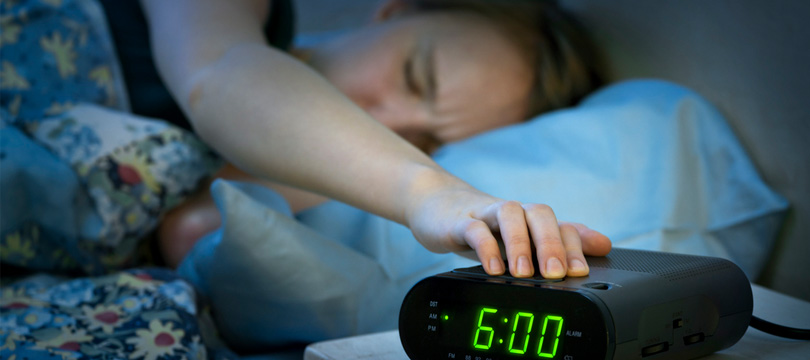Menu
Sign up for our newsletter!
Join us! We will share tips, strategies, and ideas for improving your smile and improving your life. We truly believe a beautiful smile is your biggest asset.
4 Symptoms of Sleep Apnea

Do you suffer from sleep apnea in Studio City? You’re not alone. Some 22 million adults suffer from this disorder in which breathing is repeatedly yet briefly interrupted during sleep, according to SleepApnea.org. About 80 percent of the cases of moderate and severe obstructive sleep apnea remain undiagnosed. The brief pause in sleep typically stretches to 10 seconds and even longer, with obstructive sleep apnea occurring when the muscles in the back of the throat can’t effectively keep the airway open. Obstructive sleep apnea is the most common, although some suffer from central sleep apnea, in which the brain fails to properly control breathing while sleeping.
If you sleep alone, or even if you have a spouse or partner who is a very heavy sleeper themselves, it can be difficult to tell with any certainty if you have sleep apnea. Symptoms can range from extreme fatigue during the day to depression or irritability. Let’s go over four common symptoms of sleep apnea.
1. Sleep Problems
Sleep issues related to sleep apnea can run the gamut from insomnia to hypersomnia. Insomnia involves a difficulty falling and staying asleep for the whole night. Hypersomnia refers to extreme drowsiness during the day, which can cause you to fall asleep while at work, watching TV or even when behind the wheel, says the Mayo Clinic. Sometimes you don’t even know why you’re so tired the following day. Other times, you know you’ve been up all night due to insomnia but you can’t see how it would possibly relate to sleep apnea.
However, researchers have found that the two sleep disorders are linked. Those with insomnia have symptoms brought on by sleep apnea, including frequent urination throughout the night, dry-mouth, morning-time headaches, daytime fatigue and snoring. In a recent sleep study, it was found that 90 percent of people who had been on medications for years for insomnia actually had sleep apnea instead.
As we all know, when we don’t get a good night’s sleep, this can cause us to be irritable the next morning or even have difficulty concentrating at work or school. Learning and memory difficulties may also result. If you’ve been having problems sleeping or feel like you’re going through life in a fog, you may have sleep apnea.
2. Chronic Snoring
As said above, unless someone tells you that you snore badly, you may not even be aware you do this. Nonetheless, this is a big indicator of sleep apnea and you may want to be evaluated by a healthcare professional. Are you guilty of the following?
- Snoring very loudly, so as to interrupt the sleep of others or even yourself
- Shortness of breath, chocking or gasping for enough air – all of these can abruptly awaken you from sleep
- Pauses in breathing during sleep, as witnessed by a partner
If so, you are likely suffering from sleep apnea. About 45 percent of adults snore only on occasion and 25 percent snore every night. Chronic snoring is more prevalent in men and those who are over-weight, generally worsening with age. Because it’s an indicator for obstructed breathing, a visit to an otolaryngologist or dentist can offer more insight into treatment.

3. Headaches
One big indicator of sleep apnea is frequent morning headaches that may last throughout the day as well. There could be a couple of reasons for this. Because your oxygen levels drop every time you cease breathing during the night, your brain is starved for the oxygen it needs to function well. Sleep apnea also tends to leave you with severe dry mouth, which can result in dehydration. Both factors can result in headache. It’s estimated that about 50 percent of people who wake up with headaches could have sleep apnea.
The reverse seems to be true too. Headache sufferers are at a greater risk for development of sleep apnea and other sleep disorders, with a risk that’s two to eight times greater than those who don’t have frequent headaches.
4. Depression and Anxiety
A CDC study of nearly 10,000 adults has found that sleep apnea is associated with major depression regardless of factors such as age, sex, race or even weight. Interestingly, researchers detected a link between snorting, gasping or stopping breathing during sleep with symptoms of depression, including feelings of hopelessness and failure.
More than 70 percent of people with sleep apnea also display symptoms of depression, says a new study published in the Journal of Clinical Sleep Medicine. Even more surprisingly is that researchers say this sleep condition could even be misdiagnosed as depression. If not addressed, sleep apnea can raise your risk for depression. But it can also raise your risk for health problems such as high blood pressure, heart disease, stroke and type 2 diabetes.
Contact Studio City Dental Center
If you have been experiencing any of the above symptoms, make an appointment with Studio City Dental Center today at 818-762-2977. We can suggest treatments that could help, such as oral appliance therapy (OAT) or continuous positive airway pressure (CPAP) machines if you suffer from sleep apnea in Studio City.


